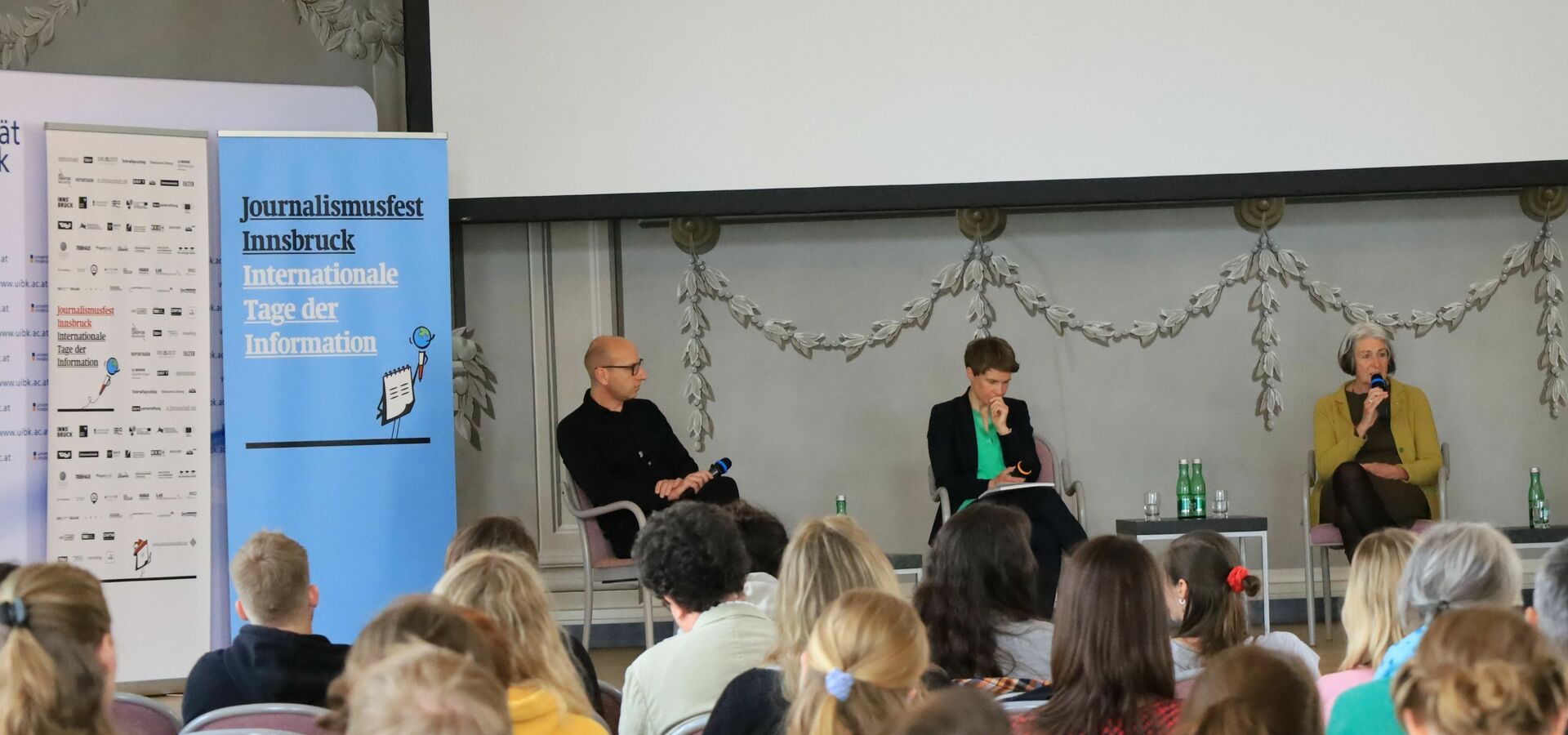Alpine towns were in the spotlight at the second edition of the Journalism Festival Innsbruck (“Internationale Tage der Information”). On 13 May the Permanent Secretariat of the Alpine Convention collaborated in the organisation of a panel discussion dedicated to the topic of Alpine towns and their role in sustainable development.
The panel was based on the 9th Report on the State of the Alps (RSA 9) on Alpine towns, which was produced under the Swiss Presidency of the Alpine Convention (2021-2022). The report examines the ecological, economic, and societal roles that towns play in the sustainable development of the Alps. It showcases how Alpine towns are hotspots for problems caused by urban sprawl, climate change or economic transformation, but are at the same time an essential part of the solution. Indeed, the ad hoc Working Group for the elaboration of the RSA 9 concluded that Alpine towns, albeit often rather small, might play a similar role than cities ten times bigger do in non-mountainous areas.
Three experts on Alpine towns sat in the discussion round: Ingrid Fischer, President of the Alpine Town of the Year Association and second mayor of Sonthofen im Allgäu/DE; Helen Lückge, co-author of the RSA 9; and Wolfgang Andexlinger, head of urban planning at the city of Innsbruck. The event was moderated by Dominik Prantl, journalist for the Süddeutsche Zeitung.
During the debate, the panellists explored diverse aspects related to Alpine towns and their role in sustainable development. Wolfgang Andexlinger provided a local perspective and was able to put current developments in Innsbruck into context.
Ingrid Fischer shared experience from her smaller Alpine town across the border and highlighted the added value of Alpine-wide cooperation within the Alpine Towns of the Year network, in terms of good practices, reciprocal motivation and joining of forces to solve similar issues across the Alps.
The five scenarios for Alpine towns from the RSA9 were also a main talking point: “Joining forces”, “High risk/high reward”, “Eco-model town”, “Citizen-based approach” and “Emergency brake”. The scenarios illustrate potential future developments for Alpine towns until 2050 and include not only positive but also several critical developments, depending on strategic choices made by the towns.
A key takeaway is that Alpine towns neither work nor exist in isolation. Instead, “it is important to think as a network and to look at your neighbours and identify with whom you have much in common and can work well with,” said Helen Lückge, highlighting the importance of considering the direct area surrounding individual towns.

